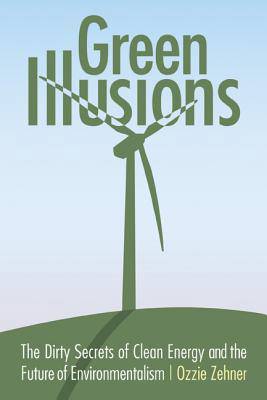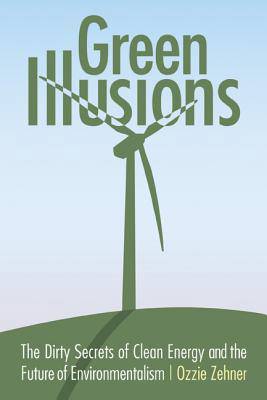
- Afhalen na 1 uur in een winkel met voorraad
- Gratis thuislevering in België vanaf € 30
- Ruim aanbod met 7 miljoen producten
- Afhalen na 1 uur in een winkel met voorraad
- Gratis thuislevering in België vanaf € 30
- Ruim aanbod met 7 miljoen producten
Zoeken
€ 45,95
+ 91 punten
Prijzen
Omschrijving
We don't have an energy crisis. We have a consumption crisis. And this book, which takes aim at cherished assumptions regarding energy, offers refreshingly straight talk about what's wrong with the way we think and talk about the problem. Though we generally believe we can solve environmental problems with more energy--more solar cells, wind turbines, and biofuels--alternative technologies come with their own side effects and limitations. How, for instance, do solar cells cause harm? Why can't engineers solve wind power's biggest obstacle? Why won't contraception solve the problem of overpopulation lying at the heart of our concerns about energy, and what will?
This practical, environmentally informed, and lucid book persuasively argues for a change of perspective. If consumption is the problem, as Ozzie Zehner suggests, then we need to shift our focus from suspect alternative energies to improving social and political fundamentals: walkable communities, improved consumption, enlightened governance, and, most notably, women's rights. The dozens of first steps he offers are surprisingly straightforward. For instance, he introduces a simple sticker that promises a greater impact than all of the nation's solar cells. He uncovers why carbon taxes won't solve our energy challenges (and presents two taxes that could). Finally, he explores how future environmentalists will focus on similarly fresh alternatives that are affordable, clean, and can actually improve our well-being.
Watch a book trailer.
This practical, environmentally informed, and lucid book persuasively argues for a change of perspective. If consumption is the problem, as Ozzie Zehner suggests, then we need to shift our focus from suspect alternative energies to improving social and political fundamentals: walkable communities, improved consumption, enlightened governance, and, most notably, women's rights. The dozens of first steps he offers are surprisingly straightforward. For instance, he introduces a simple sticker that promises a greater impact than all of the nation's solar cells. He uncovers why carbon taxes won't solve our energy challenges (and presents two taxes that could). Finally, he explores how future environmentalists will focus on similarly fresh alternatives that are affordable, clean, and can actually improve our well-being.
Watch a book trailer.
Specificaties
Betrokkenen
- Auteur(s):
- Uitgeverij:
Inhoud
- Aantal bladzijden:
- 464
- Taal:
- Engels
- Reeks:
Eigenschappen
- Productcode (EAN):
- 9780803237759
- Verschijningsdatum:
- 1/06/2012
- Uitvoering:
- Paperback
- Formaat:
- Trade paperback (VS)
- Afmetingen:
- 154 mm x 218 mm
- Gewicht:
- 680 g

Alleen bij Standaard Boekhandel
+ 91 punten op je klantenkaart van Standaard Boekhandel
Beoordelingen
We publiceren alleen reviews die voldoen aan de voorwaarden voor reviews. Bekijk onze voorwaarden voor reviews.













